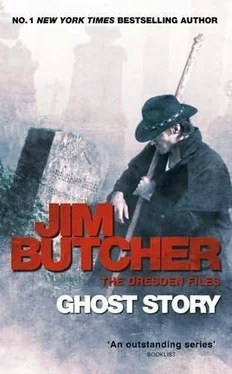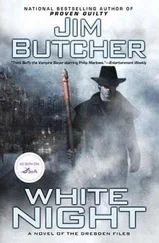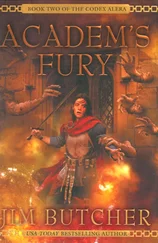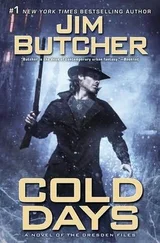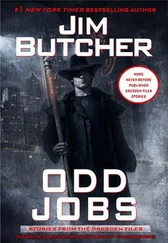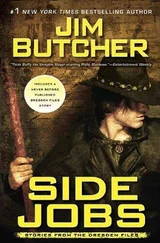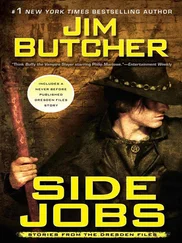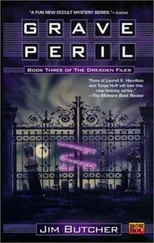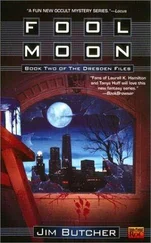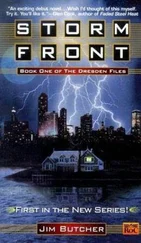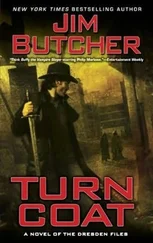“We had to ditch them.”
The bald man’s shoulders clenched, suddenly stiff. “Excuse me?”
Fitz lifted a hand to touch his fingertips to his left eye, a gesture that struck me as unconscious, instinctive. He lowered it again quickly.
“There was an accident. The police were coming. We had to walk out and we couldn’t carry the guns with us.”
The bald man stood up and turned to face Fitz. His eyes were dark, deep-set, and burning. “You lost. The guns. The guns I paid so much for.”
“The guns were already lost,” Fitz said, his eyes on the floor. “There wasn’t any sense in all of us going to jail, too.”
The bald man’s eyes blazed and a scream exploded from his chest. There was a horrible, rushing, bass-thrumming sound in the air, and an invisible force struck Fitz full in the chest, knocking him back ten feet before he hit the concrete floor and tumbled another ten.
“Sense?!” the bald man screamed. “Sense? You don’t have any sense! Do you know what the consequences of your idiocy could be? Do you know how many groups precisely like this one have been wiped out by the Fomor? By the Rag Lady? Idiot!”
Fitz lay on the floor, body curled defensively, and didn’t even try to lift his head. He was staying down, hoping not to provoke Baldy any further, his expression resigned to the fact that he was probably going to suffer more pain in short order—and that there was nothing he could do about it.
“It was simple!” Baldy continued, stalking toward the young man. “I gave you a task that men with their veins and noses full of drugs execute routinely. And it proved too great a challenge? Is that what you are telling me?”
Fitz’s voice was too steady to be sincere. He was used to hiding his fear, his vulnerability. “I’m sorry. The Rag Lady was there. We couldn’t have gotten any closer. She’d have taken us. We had to hit them and run.”
Baldy’s rage vanished abruptly. He stared down at the young man with no expression on his face and spoke in a gentle voice. “If there is some reason you believe you should be allowed to keep breathing, you should share it with the class now, Fitz.”
Fitz had a good poker face, but it had been a long night for him. He started breathing jerkily. “The idea wasn’t to kill them, you told me. The idea was to make sure that no one pushes us. That we push back. We showed them that. We accomplished the mission.”
Baldy stared at him and did not move.
I saw a bead of sweat on his brow. “It isn’t . . . It’s not . . . Look, I can get the guns back. I can. I marked where we buried them. I can go get them.”
Baldy glowered down at the young man and kicked him in the belly. The blow was offhand, absentminded, almost an afterthought. He seemed to reach a conclusion, and turned around to go back to the grill.
“Food’s hot, boys,” Baldy said. “Come eat up.”
The gang moved forward nervously. After a moment, Fitz began to rise, being careful to make no sound.
There was a sudden, puffing sigh of displaced air. Baldy’s shape blurred from the grill back over to Fitz, sending one of the young gunmen flying sideways. Baldy was suddenly slamming a hard right to Fitz’s head, his fist moving almost too quickly to see.
The hit sent Fitz to the ground. I was close enough to see the scar tissue around his eye break open, blood trickling rapidly down the young man’s cheek.
“Not you, Fitz,” Baldy said, his voice gentle again. “I don’t give food to dead men. Eat when you have corrected your error.”
Fitz nodded, without looking up, his hand pressed to his head. “Yes, sir.”
“Good lad,” Baldy said. He wrinkled his nose as if there were a mild stench in the air, and spat, mostly on Fitz. Then he turned to walk away.
The kid looked up at Baldy with murder in his eye.
I don’t mean that Fitz looked angry. You hear a lot about “if looks could kill” these days, but there just aren’t many people who really know what it looks like. Killing—or, more accurately, making the choice to kill—isn’t something we’re good at lately. Ending the life of another living creature used to be part of the daily routine. Chickens were beheaded by the average farm wife for dinner. Fish were likewise caught, cleaned, and prepared for a meal. Slaughtering pigs or cattle was a regular event, part of the turning of the seasons. Most people on earth—farmers—worked and lived every single day with lives they knew they were going to choose to end, eventually.
Killing’s messy. It’s frequently ugly. And if something goes wrong, it can be wretched, seeing another being in mortal agony, which means there’s a certain amount of pressure involved in the act. It isn’t easy, and that’s just considering farm animals.
Killing another human being magnifies the worry, the ugliness, and the pressure by orders of magnitude. You don’t make a choice like that lightly. There’s calculation to it, consideration of the possible outcomes. Anyone can kill in a frenzy of fear or hatred—you aren’t making the choice to kill that way. You’re simply giving your emotions control of your actions.
I watched Fitz’s eyes as he calculated, considered, and made his choice. His face went pale, but his jaw was clenched, his eyes steady.
I don’t know what motivated me, exactly, but I leaned down near him and snapped, “Don’t!”
The young man had begun to shift his weight, to get his feet beneath him. He froze in the act.
“He’s expecting it, Fitz,” I said in a harsh, forceful tone. “He spat on you to drive you to it. He’s ready. He’ll kill you before you’ve finished standing up.”
Fitz looked around him, but his gaze went right through me. He couldn’t see me, then. Huh.
“I’ve been where you are, kid. I know this bald loser’s type. Don’t be a sucker. Don’t give him what he wants.”
Fitz closed his eyes very tightly for a moment. Then he exhaled slowly, and his body relaxed.
“Wise,” Baldy said. “Make good on your claim, and we might still have a way to work together, Fitz.”
Fitz swallowed, and grimaced as if at a bitter taste in his mouth, and said, “Yes, sir. I’m going to check the perimeter.”
“An excellent idea,” Baldy said. “I’d rather not see you for a while.” Then he walked away from Fitz, leaning down to touch the shoulder of one of the young men, and muttered softly.
Fitz moved, quickly and quietly, getting off the shop floor and moving out into the hallway. There he hugged himself tightly, shivering, and began walking rapidly down a hallway.
“I’m not crazy,” he said. “I’m not crazy. I’m not crazy.”
“Well . . . kinda,” I said, keeping pace. “What are you doing working for an asshole like that?”
“You aren’t real,” Fitz said.
“The hell I’m not,” I replied. “I just can’t figure out why it is that you can hear me talking.”
“I’m not crazy,” Fitz snarled, and put his hands over his ears.
“I’m pretty sure that won’t help you,” I noted. “I mean, it’s your mind that perceives me. I think you just happen to get it as, uh . . . one of those MV4 things, instead of as a movie.”
“MP3,” Fitz corrected me automatically. Then he jerked his hands from his ears and looked around him, eyes wide. “Uh . . . are you . . . you actually there?”
“I am,” I confirmed. “Though any halfway decent hallucination would tell you that.”
Fitz blinked. “Um. I don’t want to piss you off or anything but . . . what are you?”
“I’m a guy who doesn’t like to see his friends getting shot at, Fitz,” I told him.
Fitz’s steps slowed. He seemed to put his back against a wall out of reflex more than thought. He was very still for a long moment. Then he said, “You’re . . . a, um . . . a spirit?”
Читать дальше
